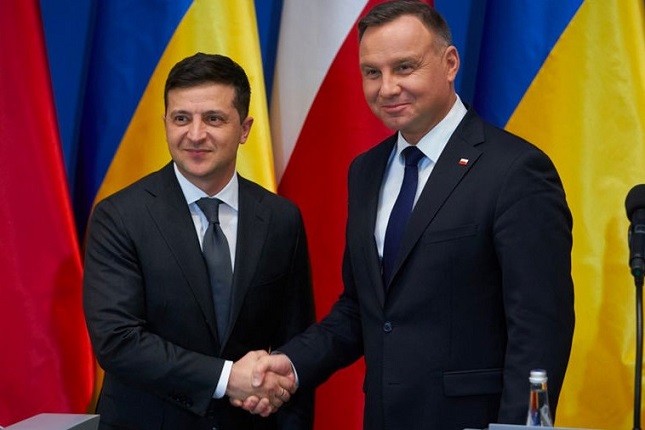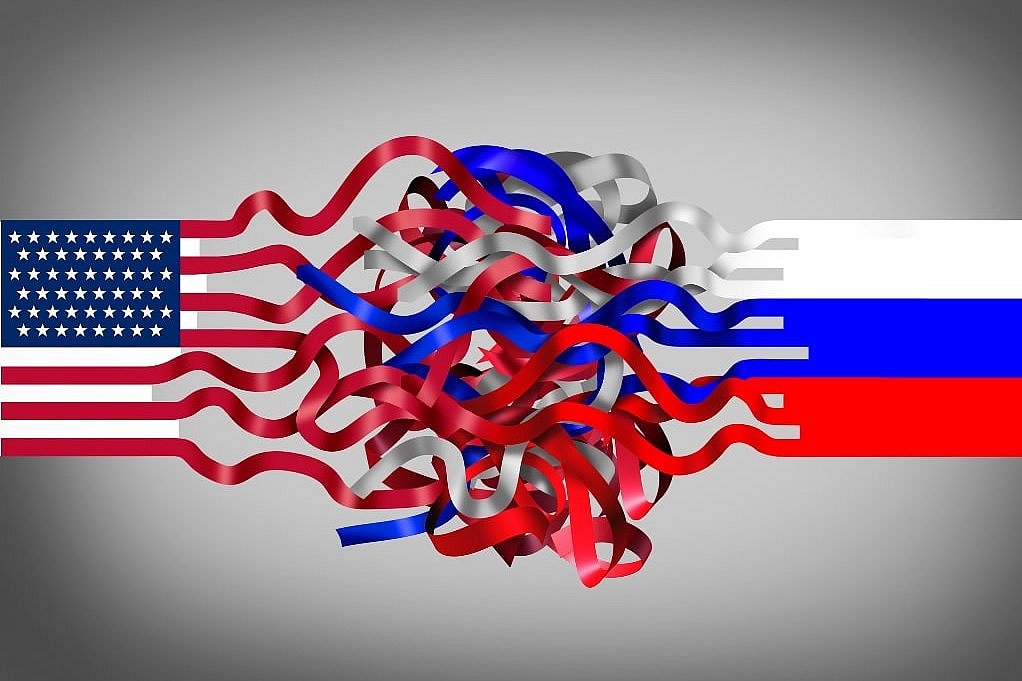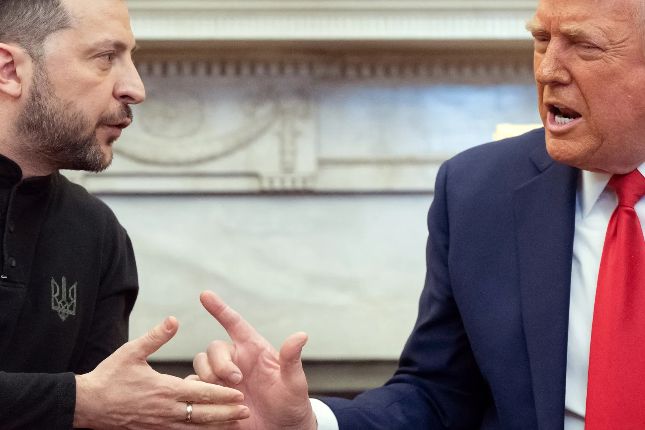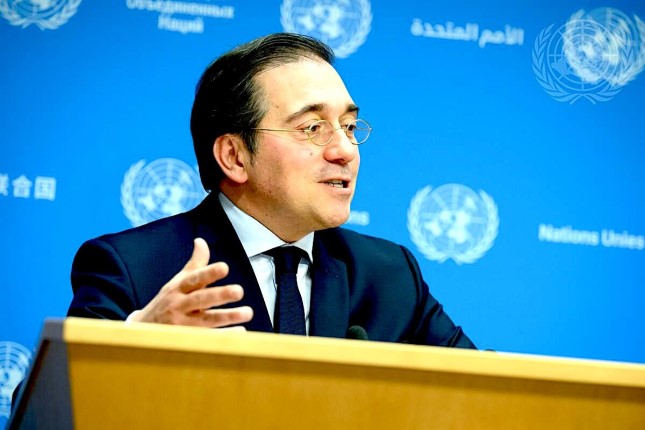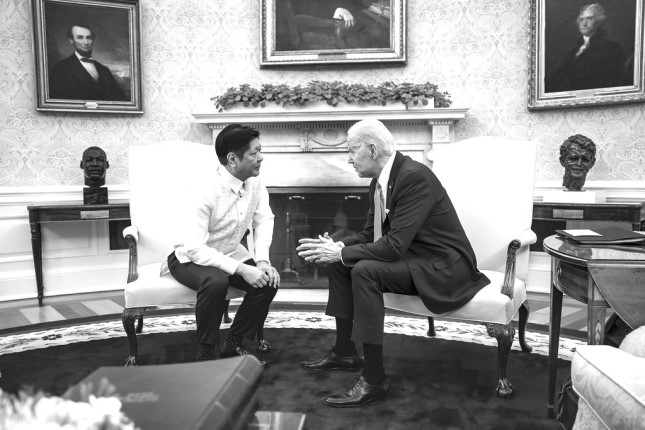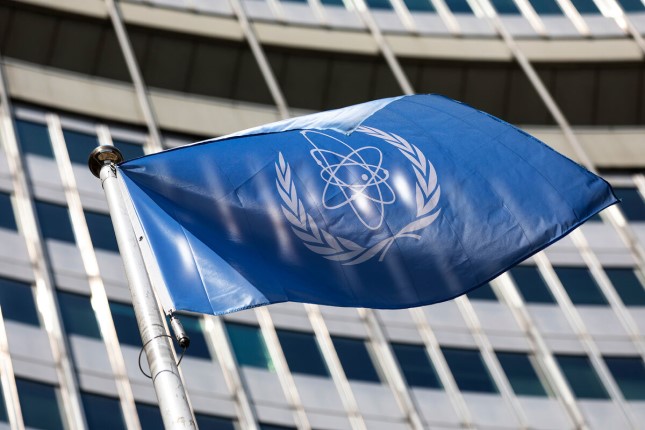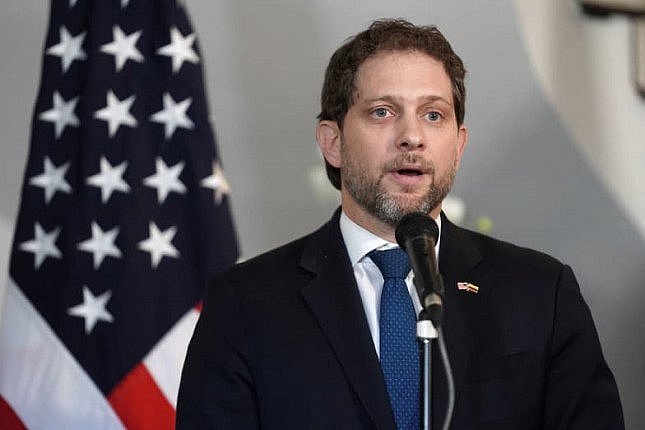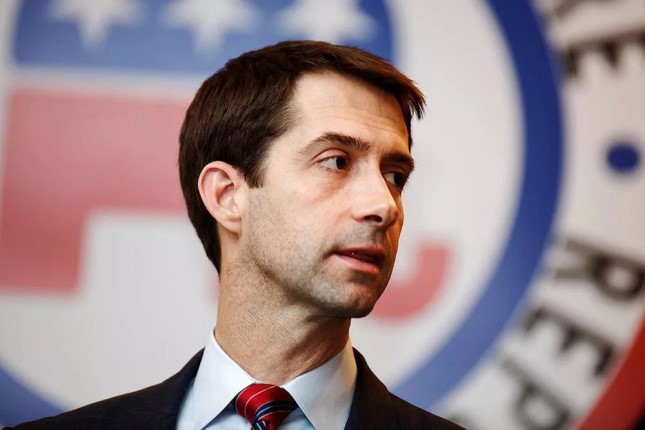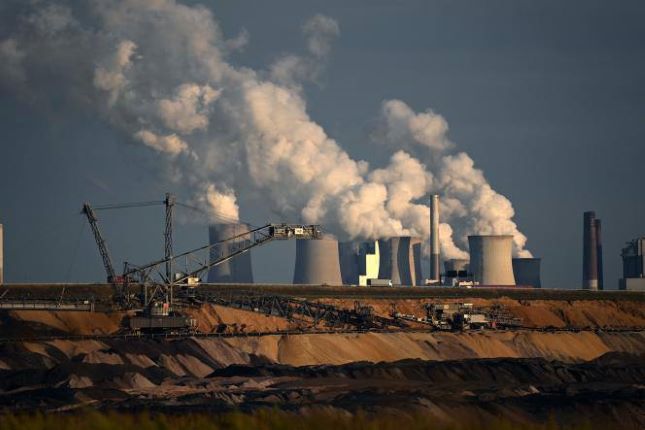Having crushed his opposition in the nation’s parliament, Ukraine’s President Volodymyr Zelensky is turning his attention to taking on the country’s political heavyweights. Disgraced politician and oligarch Viktor Medvedchuk, detained by Ukraine’s Security Service on charges of high treason, provided incriminating evidence against former Ukrainian President Petro Poroshenko, prompting Ukraine’s law enforcement to subpoena for questioning virtually all of the country’s big-league politicians of the past two decades, including former Minister of Internal Affairs Arsen Avakov, former Secretary of the National Security and Defense Council Oleksandr Turchynov, former Prime Minister Arseniy Yatsenyuk, and Maxim Timchenko, CEO of DTEK, an energy company owned by oligarch Rinat Akhmetov. Zelensky may have been advised to take advantage of the ongoing hostilities and eradicate all opposition in a single blow to establish a strict autocratic rule. He concurrently presented a bill already submitted to the Verkhovna Rada, which, if adopted, would essentially turn Ukraine into Poland's protectorate. Poland’s citizens would be granted the right to be elected and appointed to public office, and the Polish police would have the right to maintain order on Ukraine's territory. Instead of leading to Ukraine’s "westernization", political gambles like these run the risk of having the opposite effect as those "on the fence" and Ukrainian nationalists are more likely to prefer Russia over Poland.
In late May, Ukrainian oligarch Viktor Medvedchuk, detained by Ukraine’s Security Service, started giving incriminating evidence against former Ukrainian President and Zelensky's political opponent Petro Poroshenko. According to Medvedchuk, the former president privatized an oil product pipeline with the help of his Russian counterparts and made tens of millions of dollars from this deal. He also claims that Poroshenko had been implicated in shady deals involving Ukraine's coal procurement from the secessionist Donetsk and Luhansk People's Republics. According to Medvedchuk’s testimony, nearly all top government officials were involved in these deals. Ukraine’s law enforcement authorities’ response was swift. They subpoenaed for questioning essentially all members of the nation’s political beau monde: Avakov, Turchinov, and Yatsenyuk, who, however, chose to turn the appointments down as they wisely thought that it posed a risk to their security. Just a few days before that, President Zelensky had signed a ban on "pro-Russian political parties" in Ukraine. The list includes nine outlawed parties: the Opposition Platform For Life, Sharij’s Party, the Nashi (Ours) Party, the Opposition Bloc, the Left Opposition, the Union of Left Forces, Derzhava, Progressive Socialist Party of Ukraine, Socialist Party of Ukraine, the Socialists, and Volodymyr Saldo’s Bloc.
The politicians implicated in Poroshenko's "case" pose a danger to Zelensky, whose regime's resilience has only been declining as the hostilities keep dragging on. The second most threatening opponent of the president after Poroshenko is Arsen Avakov, the former head of the Ministry of the Interior. For a long time, he had been in charge of the National Police, the State Border Service, the State Emergency Service, the National Guard, and the State Migration Service, and to this day, he has had real sway there. As former head of Ukraine’s Security Service and the National Security and Defense Council, Oleksandr Turchinov has retained strong connections with law enforcement and defence agencies, but, unlike Avakov, he has always cut more of a political figure rather than a fighting force. Former Prime Minister Arseniy Yatsenyuk, who had at one time or another been in charge of the nation's economy and headed up Ukraine's foreign office, has been able to cultivate extensive connections in the West. However, in the current context of a military catastrophe, they cannot push back against pressure from Zelensky, nor can they realistically count on the help of their Western counterparts. Thus, a "weak Zelensky" and his advisors chose the opportune moment to sweep the nation’s political landscape clean of any opposition.
In the meantime, Volodymyr Zelensky’s government has turned to neighbouring Poland for support in its security and administrative affairs. Following a meeting with Poland's Prime Minister Mateusz Morawiecki in Kyiv, draft legislation was submitted to the Verkhovna Rada to give Warsaw unprecedented rights in Ukraine's sovereign territory. Polish nationals will now enjoy the right to hold administrative office (both as elected and as appointed officials), be employed by Ukraine’s courts, and serve in the country’s armed forces. In addition, control measures on the border between the two countries will be eased, and Poland’s police will be allowed to be engaged in law enforcement activities on the territory of the neighbouring sovereign state. Once signed into law, this bill would give Poland a legal opportunity to establish its control over Western Ukraine at a minimum and thus reduce Ukraine’s status to a protectorate or, worse, a colony. Some observers sarcastically point out that this new arrangement replicates an ages-old medieval formula: a Polish lord (Morawiecki), a Jewish estate manager (Zelensky), and Ukrainian serfs.
Zelensky's attempt to look directly to Poland for support could lead to a result that is the opposite of the desired effect. Instead of giving his regime a semblance of stability, this could lead to its collapse. Historically, Poland’s rule over Ukraine was marked by its brutal treatment of the locals. This is why the proposed Polonization of Ukraine’s government and law enforcement may cause resentment on the part of Ukraine’s nationalists and military that are currently busy fighting a war with Russia, let alone the inhabitants of the Donbas and Russia-occupied regions of Kherson and Zaporizhzhia where residents are in the process of obtaining Russian citizenship. Because of this, Ukraine’s resistance, whose resolve has already been shaken by Russia’s onslaught, may not just start crumbling but also turn its guns against the authorities in Kyiv and their Polish masters to begin acting in synch with Moscow going forward.
